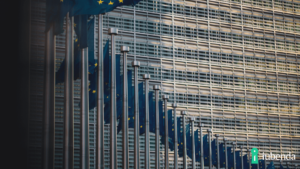As an important step towards analyzing and mitigating the risks from generative AI technologies, the European Commission has now initiated the first DSA framework’s significant stage.

The Commission has issued formal requests for information to eight of the largest digital platforms and search engines, including Bing and Google Search. They all full under the classification of Very Large Online Search Engines (VLOSEs), and Facebook, Instagram, Snapchat, TikTok, YouTube, and X (under the classification of Very Large Online Platforms, or VLOPs). This gesture demonstrates the EU’s ambition to be responsive to the changing AI field, especially the growing dominance of AI generative technologies.
The Commission’s concerns are related to the potential of generative AI turning into negative force that can harm society. The Commission intends to require specific information from these platforms and search engines concerning the strategies used to prevent the risks such as AI generated hallucinations, spread of the deepfakes virus and manipulation of AI services that can mislead voters. These risks concern particular areas, and those areas are the integrity the electoral processes, the dissemination of illegal content, the protection of fundamental rights, gender-based violence, the well-being of minors, mental health, data privacy, consumer protection, and intellectual property rights.
The request for information covers both the dissemination and creation of content by generative AI technologies, pointing to the broad scope of the Commission’s concerns. The informed companies have to correspond to all requests on electoral protection by April 5, 2024, the deadline for all the other inquiries is April 26, 2024.
With this action by the Commission, there is no anticipation of front-loading of further regulatory or enforcement matters but acts as a preliminary measure. However, the feedback of the respondents is of the utmost importance in devising the next moves of the Commission. The Commission is also included by Article 74 (2) of the DSA to fine data controllers over misrepresentation, lack of information, or incorrect details they give to the Commission. Similarly, the non-compliance with the required performance targets within the set deadlines could lead to the imposition of periodic penalty payments.
The topic of generative AI and its possible risks has also been mentioned in the Commission’s draft guidelines on the integrity of electoral processes. The guidelines aim at assisting VLOPs and VLOSEs in acquiring the best practices and examples of mitigation measures to deal with election-related risks, including the ones involving the generative AI technologies.
This move by the European Commission demonstrates that it is a growing global realization that AI requires regulation and monitoring during its development and usage. This will guarantee that the Commission deals with a key issue that can give rise to public opinion and may spread misinformation and influence the democratic process. The responses of these platforms and search engines would serve as the indicators of how generative AI risks could be managed and whether additional actions are needed to create a safe, fair, and transparent atmosphere for all users.
